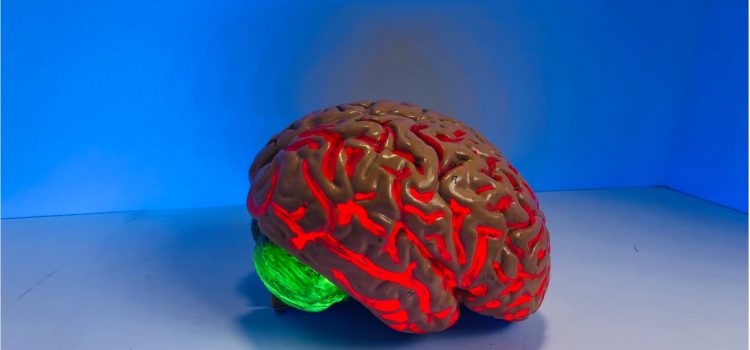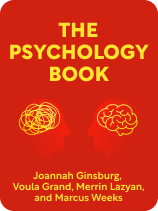

This article is an excerpt from the Shortform book guide to "The Psychology Book" by Catherine Collin, Nigel Benson, et al.. Shortform has the world's best summaries and analyses of books you should be reading.
Like this article? Sign up for a free trial here.
What is cognitive psychology? When did psychologists begin to focus on emotion and memory?
After World War II, psychologists began to focus less on behavior, and more on emotion and memory due to scientific advances. They started to perceive the brain as an information hub that people knew barely anything about.
Continue reading for an introduction to cognitive psychology from The Psychology Book.
Cognitive Psychology: The Study of Mental Processes
The authors of The Psychology Book say that after World War II, psychology’s main focus shifted from behavior and psychoanalysis to the study of mental processes like emotion and memory in what’s referred to as the “cognitive revolution.” Following the development of computer systems and artificial intelligence, some psychologists began to view the brain as an information processor, and this view—along with advances in neuroscience—gave them a model for how to study mental processes directly instead of interpreting them through behavior. This led to the field of cognitive psychology, which remains the dominant approach to psychology today. Below we’ll dive into an introduction to cognitive psychology by discussing some of its most influential concepts.
(Shortform note: The fields of cognitive psychology and computer science continue to be closely intertwined, as much of the research and advancements in artificial intelligence—the purpose of which is to program computers to have abilities similar to those of the human brain—is based on concepts from cognitive psychology. Universities now offer combined majors in computer science and cognitive psychology because of the close link between the two fields.)
Beliefs and Cognitive Dissonance
Some cognitive psychologists study beliefs, the authors explain. In the 1950s, Leon Festinger studied how people deal with information that clashes with their beliefs. He noticed that people whose beliefs are challenged by evidence experience an uncomfortable feeling called “cognitive dissonance.”
People experiencing cognitive dissonance will seek a way to reconcile the differences between their beliefs and the contradictory evidence. Someone with an open mind may change their beliefs, but people who hold very strong beliefs are likely to distort or ignore contradictory evidence in order to protect their beliefs. This is particularly true when the person has invested a lot in their beliefs (like time, emotion, or money).
Memory: Storing and Categorizing
According to the authors, other cognitive psychologists studied how the brain organizes and stores memories.
Psychologist Endel Tulving identified two types of long-term memory: episodic memory, which is memory of experiences and events, and semantic memory, which is memory of data and facts. In his experiments, Tulving demonstrated that we group pieces of semantic memory into meaningful categories to remember them better (like grouping the words “red” and “blue” into the category of “colors”). To remember experiences, however, we organize episodic memories according to the circumstances—such as time, location, and sensory input—under which they occurred. This is how a date or a smell might become associated with an experience in our memories.
(Shortform note: Knowing how we organize episodic memories can make it easier to summon them to mind later in life, particularly in cases involving memory impairment. People with dementia can use sensory stimuli to trigger episodic memories from their past, which can be a pleasant and empowering experience for them. Additionally, episodic memory and semantic memory may be less distinct than Tulving’s original theory suggests, as more recent theories seem to indicate that semantic memory is also closely linked to circumstantial context such as sensory input: In order to store semantic memory, the brain may engage in semantic encoding, which is when the brain converts sensory stimuli into meaningful data to make it easier to retrieve.)
Applications for Legal Systems
According to the authors, some aspects of cognitive psychology became particularly useful in fields like forensics and law. In the 1970s, Israeli-American psychologist Daniel Kahneman (Thinking, Fast and Slow) and Israeli psychologist Amos Tversky observed that people tend to base their decisions on anecdotal evidence rather than statistical data or probability (contrary to popular belief at the time). Their observations had major implications for decisions made by juries.
(Shortform note: Additional research since the 1970s shows there are also other factors that determine how much credence we give to facts versus anecdotal evidence. People are equally likely to believe both anecdotal evidence and facts in discussions about nonmoral issues, but when the topic is centered around a moral disagreement, anecdotal evidence is given greater consideration. This is particularly true when the issue involves harm of some kind. This helps explain the harsh political divide between groups on moral issues like gun control, climate change, and immigration.)
Soon after, American psychologist Elizabeth Loftus demonstrated that people’s memories could be distorted or even fabricated by emotions, other experiences, or the way in which the person is asked to recall them. This became known as “false memory syndrome.” Loftus used these findings to criticize memory retrieval techniques like dream therapy and hypnosis and also to insist that eyewitness testimony is not sufficient evidence to prove a crime in court—even though jurors tend to give it more credence than any other type of evidence. Still, her findings have been adopted in a number of legal systems today.
(Shortform note: There’s debate as to whether eyewitness testimony that involves uncovering repressed memories should be admissible as evidence in court. Some point out that testimony from individuals who suffer insane delusions is admissible, so it would be inconsistent to exclude uncovered memories as testimony. Some experts who assess the validity of repressed memories in legal situations look for certain clues that memories may be false, including the age the individual was in the memory, who the individual was with when the memory was uncovered, and whether someone like a therapist may have implanted the memory.)

———End of Preview———
Like what you just read? Read the rest of the world's best book summary and analysis of Catherine Collin, Nigel Benson, et al.'s "The Psychology Book" at Shortform.
Here's what you'll find in our full The Psychology Book summary:
- Psychology 101 without the classrooms and dry lectures
- A look at the various fields of psychology and how they've changed
- Context, criticisms, and limitations of certain theories






